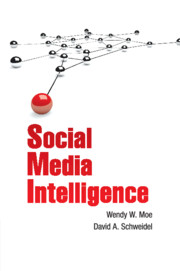5 - Opinion Ecosystems and the Evolution Within
from Part III - Conversational Trends
Published online by Cambridge University Press: 05 February 2014
Summary
As individuals, we make decisions about whether to post our opinions to social media and what opinions to post. When we make these decisions, we are subject to a host of social influences. While we may have intended to express our thoughts on the latest restaurant that we visited or a movie that we recently saw, posting comments online doesn’t occur in a vacuum. Based on what others have said previously, what we choose to say (that is, if we choose to say anything at all) may change once we sit down at the computer.
Earlier chapters discussed how our opinion formation and expression behaviors change as we are exposed to the opinions that others have already posted. In turn, the opinions we express today will affect how others behave in the future. Social media platforms can be seen as opinion ecosystems where our viewpoints interact and influence those of other contributors. Some opinions will be discouraged and driven out of the ecosystem through selection effects. Other opinions adapt to the environment as a result of a variety of adjustment effects. As a result, the collective opinion of the posting population evolves.
- Type
- Chapter
- Information
- Social Media Intelligence , pp. 69 - 88Publisher: Cambridge University PressPrint publication year: 2014

